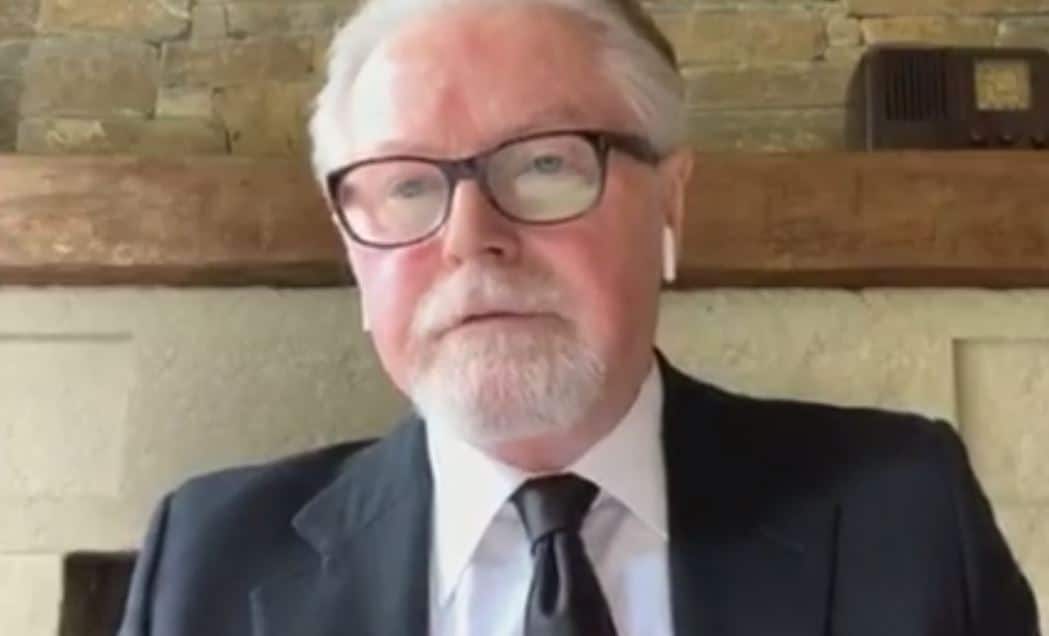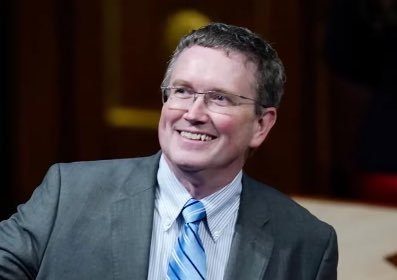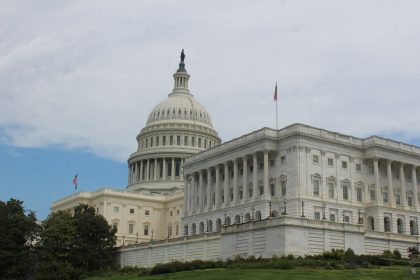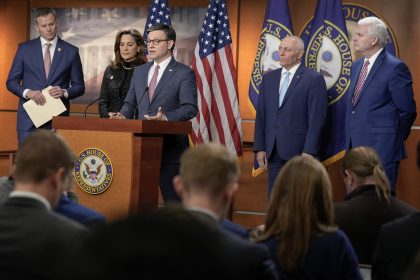Eagles’ Henley Headlines Robust Debate Over Digital Copyright Law

WASHINGTON – Eagles founder and co-songwriter Don Henley urged a Senate subcommittee on Tuesday to stand by the side of artists he contends have been catastrophically harmed by a safe harbor provision of the Digital Millennium Copyright Act.
When it was passed in 1998, the DMCA was a reaction to an emerging online “marketplace” where commercial works like individual songs and albums, books and films and television shows could be easily pirated and offered for download, without the creators of the works profiting from their art.
As an unintended consequence, the law was the death knell for what remained of free-form progressive FM rock radio, which had begun to migrate to the web as online streaming proliferated.
Suddenly, disc jockeys who still put together long sets of related music or opted excitedly to play the whole side of a new album, were restrained from doing so by limits on how many tracks by a given artist could be played within a certain amount of time.
The idea was that the limits would prevent people from ripping digitally-perfect recordings of artists’ works off the internet without paying for them.
Similarly, the law allows holders of copyrighted material to formally complain to parties they believe have taken their content without permission and posted it online and on social media platforms, and ask them to remove it.
The parties can dispute the claim. If they comply promptly with the request, there is no harm nor foul under the law, and therefore no legal consequences. Otherwise, the individual or company posting the copyrighted material they do not own, may be subject to criminal penalties.
But Henley, who wrote and co-wrote some of the most memorable songs of the 1970s and 80s, and who at 73 describes himself as being “in the final chapter of my career,” told the Senate Judiciary subcommittee on intellectual property that the law simply hasn’t worked.
In doing so, virtually, from his home in California, Henley was wading into a copyright battle pitting artists of nearly all stripes against the big tech platforms like Google’s YouTube, Facebook and TikTok.
“I am present,” he said, “not to be contrary, not to advance a personal agenda … but out of a sense of duty and obligation to those artists, those creators who paved the road for me and my contemporaries, and for those who will travel this road after us.”
“I want to do everything in my power to strengthen the property rights of music creators of all ages, races and creeds … and to change or improve outdated laws and regulations that have been abused for over 20 years by Big Tech … the enormous digital platforms that facilitate millions of copyright infringements, monthly,” he said.
Henley told the committee proof that the DMCA does not work for artists and songwriters is everywhere, “a simple online search for a song returns an endless list of sites that never asked the copyright owner for permission, never received a license and never passed on a penny to the artist for use of their music.”
The co-writer of “Best of My Love,” “Desperado,” and “Hotel California,” and dozens of other classics, then went on to say that as the digital marketplace has matured, the owners of the big tech platforms have exploited the weaknesses in the DMCA to actually use it as “negotiating leverage to pay license fees which are well below market.”
Worst of all, the act places the burden of policing copyright infringements on global platforms with the artists instead of the massive technology companies who own and operate the platforms, he said.
“The system is antiquated and badly broken,” Henley said. “And the creative community is paying a very steep price.
“I have worked hard to establish my career and reputation, and I have enjoyed success. For me, this is a matter of principle,” he said. “I am speaking out for those songwriters and recording artists who are struggling to make a living.”
Henley said though content owners send “hundreds of millions” of takedown notices annually, “for each infringing link or file taken down, a dozen more pop up in its place.”
“Even worse, due to the antiquated procedures dictated by the DMCA, internet services with clear oversight and control of content posted on their websites are continuing to monetize and collect advertising revenue on videos containing music, even after that music has been flagged by the music creator as infringing. How is that a fair bargain?” he asked.
Henley went on to assert that the “astronomical” number of infringement notices sent by creators is not a sign that the system is working – as some defenders of the DMCA suggest.
“That would be akin to measuring our country’s success in fighting wildfires by measuring the number of attempts to extinguish them,” he said. “Instead, we need to seek out the root causes of those fires, implement preventive measures, and ensure that they don’t reignite.
“Particularly now, as our industry has been decimated by the pandemic, we need equitable compensation for the rights guaranteed to authors under the Constitution,” he continued. “Given the current ban on large social gatherings and the indefinite pause in live performances, income from licensed digital music services may be the only real source of revenue music creators can rely on in the foreseeable future.”
Henley got support for his position from Douglas J. Preston, president of The Authors Guild, the nation’s oldest and largest organization for professional writers.
Like Henley, Preston said the notice-and-takedown system enshrined in the DMCA is not working, “at least not for authors, other individual creators, and small creative businesses.”
“This is because of the extremely narrow way in which the courts have construed the disqualifications for section 512’s safe harbors, effectively eliminating several prerequisites,” he said. “The courts did so in part because of section 512(m)’s express statement that safe harbor protection is not conditioned on a duty to monitor.
“Nor is the statute working as Congress intended,” Preston continued. “The drafters of the Digital Millennium Copyright Act not only recognized the economic promise of the digital revolution, but they also recognized its perils to rights holders—particularly to individual creators such as authors, who lack the resources to combat digital theft on an industrial scale.”
In enacting the DMCA in 1998, Congress intended for section 512 to strike a balance between the needs of rights holders and the needs of internet service providers, by incentivizing ISPs to cooperate with rights holders in combating internet piracy, while at the same time promoting the development of a robust internet economy.
At the heart of section 512 is a bargain struck between copyright owners and service providers: in exchange for protection from financial liability for the infringement of their users, the ISPs were to cooperate with copyright owners in protecting against copyright infringement on their services.
“The second aspect of the bargain hasn’t worked so well,” Preston said. “Courts have barely held ISPs accountable. With the exception of recent cases that enforced section 512(i)’s requirement to adopt and reasonably implement a repeat-infringer policy, most decisions interpreting section512 – particularly those in the Second and Ninth Circuits, where the largest number of copyright cases are brought – have done so in favor of the ISP and to the detriment of the rightsholder.”
“This, we believe, is due not only to the courts’ understandable fear of interfering with the progress of nascent internet technologies, but also due to a misunderstanding of the bargain Congress intended to enact because of some inconsistencies within the statute as applied to today’s ISPs,” he said.
He concluded by saying “the courts’ overbroad application of the safe harbors (and narrow application of the disqualifiers) has caused real, palpable damage to our creative sectors. The whack-a-mole system that the courts left us with is absurd and unworkable, particularly from the individual creators’ perspective.”
There was, of course, another side to the argument presented at the hearing.
Users of the content on YouTube and other platforms have accused copyright holders of alleging infringement where it doesn’t exist.
At the same time, internet companies say they have worked actively with the creative industries to block access to illegal content and protect the copyrights.
Jonathan Berroya, interim president and CEO of the major trade group Internet Association, testified the safe harbor provision of the DMCA “fostered the growth of an internet that has transformed the world we live in for the better.”
“Indeed, it is section 512 that has facilitated the development of the internet’s rich and varied opportunities for people to connect, share, entertain, and discuss matters of public and personal importance,” Berroya said.
“It is only with the legal certainty afforded by section 512’s safe harbors that such interaction is possible,” he continued. “Without the clearly defined safe harbors of section 512, service providers would face potentially crippling exposure to copyright infringement liability, and in exchange would be forced to undertake measures to limit that exposure, to the detriment of content owners and users alike and at a time when online connection is needed more than ever.”
Berroya said the recent pandemic has demonstrated the importance of the internet to Americans for work, education, entertainment, and creativity.
“While it is understandable that the Copyright Office would focus on the impact of section 512 on copyright owners and copyright law, an assessment of the DMCA safe harbors is incomplete without meaningful consideration of other values important to users, such as free speech, economic and cultural citizenship, and privacy.
“It bears emphasis that ‘users’ in this context is not synonymous with consumers,” Berroya said. “While online service providers obviously provide services to individual consumers, they also provide services to many businesses.
“The section 512 safe harbors enable online service providers to provide businesses with mission critical services such as internet access, hosting of websites and online marketplaces, cloud storage, and search — at affordable prices and with robust privacy and security,” he said.























